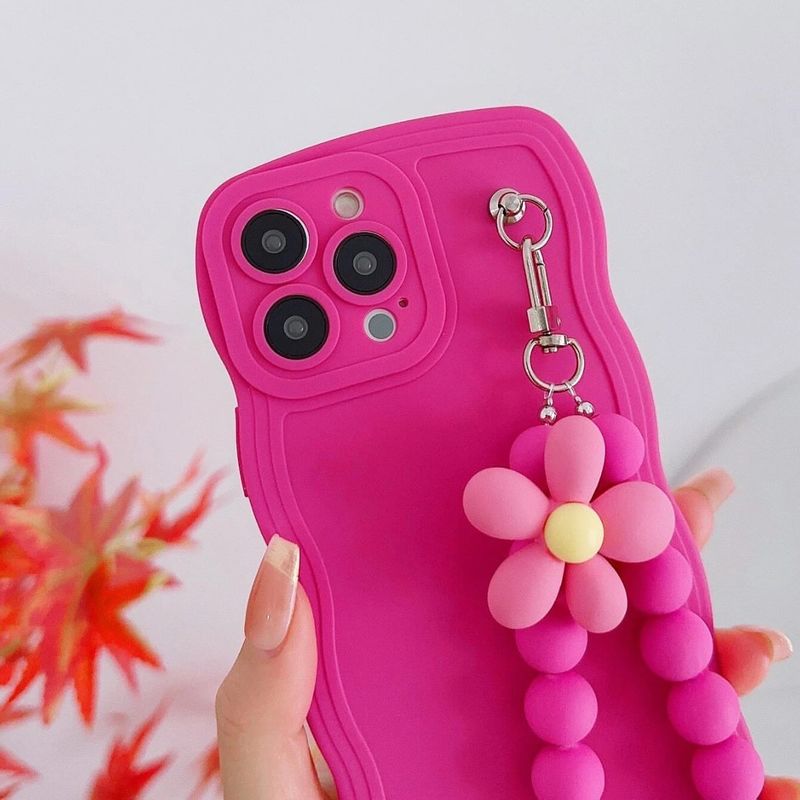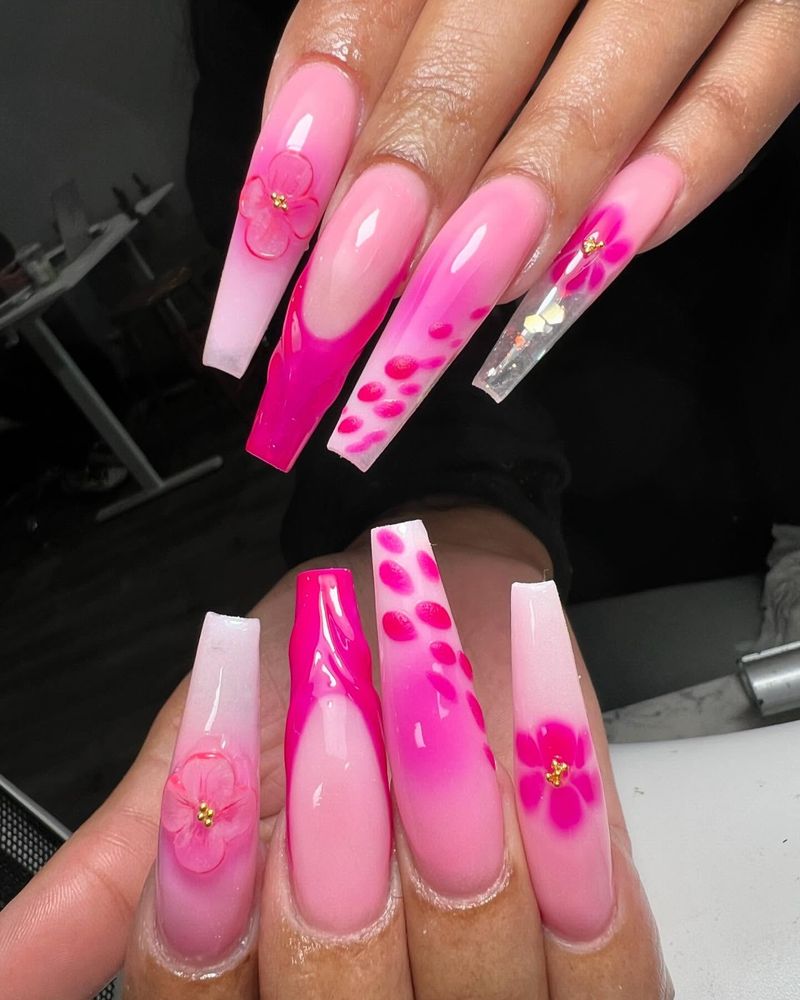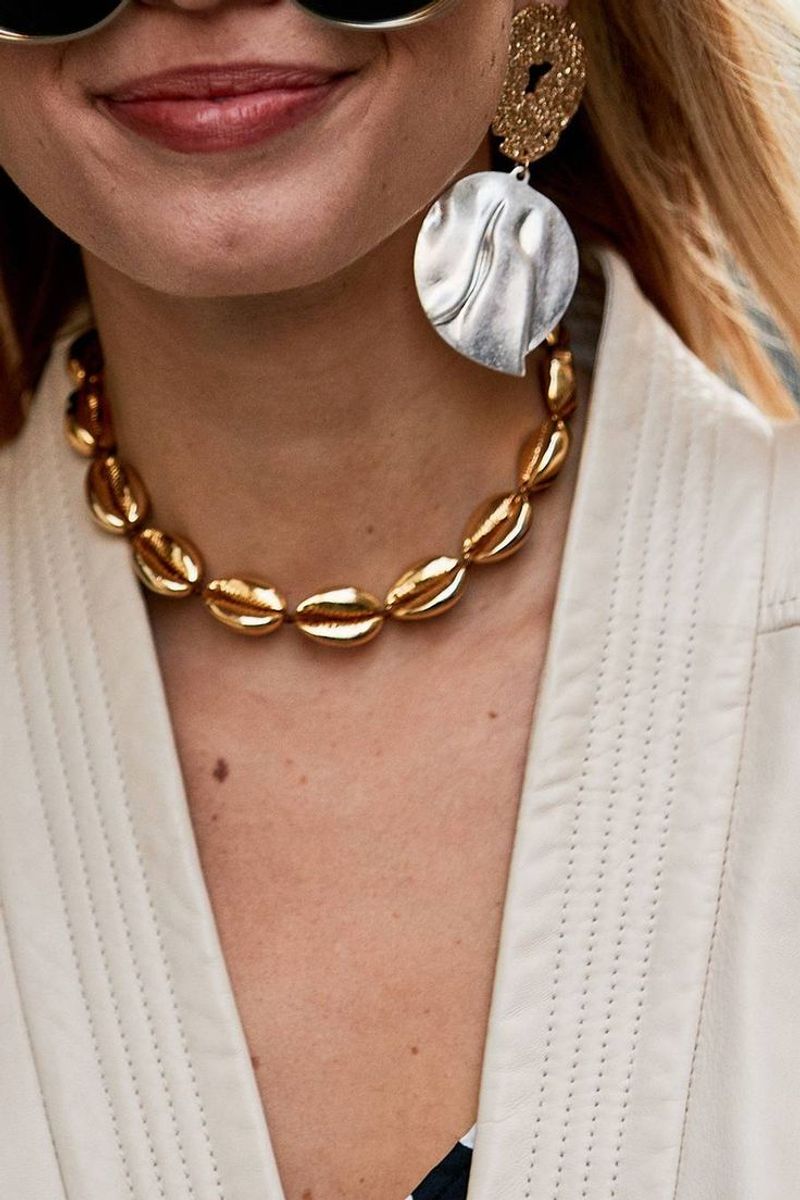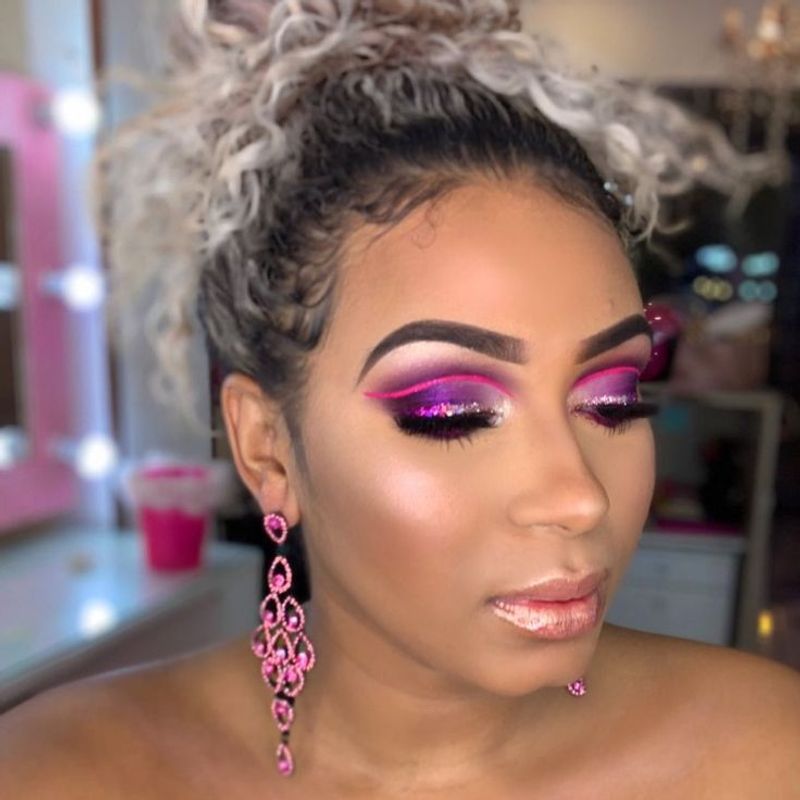We all make snap judgments about others based on tiny details, often without even realizing it. These small habits and choices can send unintended signals about our upbringing, attention to detail, or social awareness. While true class isn’t about money or status, certain behaviors and style choices are universally recognized as lacking refinement. Understanding these subtle signals can help you present your best self in any situation.
1. Loud, Flashy Phone Cases

That bedazzled phone case covered in rhinestones or cartoon characters might express your personality, but it also broadcasts a certain juvenile aesthetic in professional settings. Phone accessories fall into the category of personal items that others notice more than you might realize.
Mature professionals typically opt for sleek, understated cases that prioritize protection without drawing attention. This doesn’t mean abandoning personality entirely—quality materials in subtle colors can still reflect your style without screaming for attention.
2. Wearing Clothes With Big Brand Logos

Giant logos plastered across clothing scream “walking billboard” rather than tasteful fashion choice. The irony? The most expensive designer pieces often feature minimal or hidden branding, while items covered in logos are frequently entry-level products.
Truly confident style doesn’t need brand names to validate its worth. Quality speaks through excellent fit, fine materials, and thoughtful design—not through oversized logos.
Next time you’re shopping, ask yourself: would this piece still be attractive if the logo disappeared? If not, you might be paying for advertising rather than craftsmanship. Elegant style whispers rather than shouts about its origins.
3. Overly Long or Unkept Fake Nails

Those talon-like extensions might look dramatic on social media, but in real life, extremely long acrylics often read as impractical and tacky. When they’re chipped, grown out, or decorated with excessive rhinestones, the effect becomes even more problematic.
Manicured hands signal attention to detail, while neglected nails suggest the opposite. Even budget-friendly nail care can look elegant when kept at a moderate length with clean edges and subtle colors.
The most sophisticated nail looks tend to be shorter, well-maintained, and in neutral tones—allowing your competence, not your claws, to make the strongest impression.
4. Visible Bra Straps or Underwear Lines

Nothing ruins a polished look faster than lingerie peeking out where it shouldn’t. Those colorful bra straps sliding down your shoulder or visible panty lines breaking up the smooth silhouette of your outfit instantly diminish your overall appearance.
Proper undergarments should provide support without stealing the spotlight. Invest in nude-colored options that disappear under lighter fabrics, or explore seamless alternatives designed to remain invisible. For tricky necklines, convertible bras with adjustable straps offer versatile solutions.
5. Speaking Loudly in Public

Ever been trapped near someone whose volume control seems permanently set to maximum? That person broadcasting private conversations across the restaurant or shouting into their phone on public transit instantly signals a lack of social awareness.
Volume awareness shows consideration for shared spaces. Cultured individuals modulate their voices to match their surroundings, recognizing that their conversations aren’t meant for public consumption.
This doesn’t mean whispering—just maintaining an appropriate volume that respects others’ right to peaceful existence. Your fascinating phone call about last weekend’s drama doesn’t need an unwilling audience of fellow commuters or diners trying to enjoy their meals.
6. Over-accessorizing

Coco Chanel famously advised removing one accessory before leaving home, and her wisdom remains timeless. Piling on jewelry until you jingle with every movement creates visual chaos rather than stylish impact.
Multiple necklaces competing for attention, stacks of bracelets clanking with each gesture, and rings on every finger transform potential elegance into a distracting jumble. The refined approach? Select a few quality pieces that complement rather than overwhelm your outfit.
Statement accessories work best when given room to shine. A striking necklace deserves to be the star, not competing with dramatic earrings and armfuls of bangles. Remember that restraint often signals confidence in your style choices.
7. Dirty or Scuffed Shoes

First impressions start from the ground up. No matter how expensive your outfit might be, worn-down heels or scuffed, dirty sneakers instantly undermine your entire look. Professional stylists often note that shoes are among the first things people subconsciously notice.
Even budget footwear can look presentable when properly maintained. A simple cleaning routine, shoe polish, and prompt repairs for worn heels or damaged soles make a tremendous difference in your overall appearance.
The attention you give your shoes reflects your overall approach to self-presentation. Clean, well-maintained footwear signals respect for yourself and the occasions you attend—regardless of the price tag.
8. Heavy Perfume or Cologne

Your signature scent should be discovered, not announced. When your fragrance enters the room before you do and lingers long after you’ve left, it’s no longer an enhancement—it’s an assault on others’ senses.
Refined fragrance application follows the principle that scent should be a subtle pleasure for those who come close to you, not a cloud enveloping everyone in your vicinity. One or two spritzes applied to pulse points is sufficient for most quality fragrances.
Those who regularly overapply often become “nose-blind” to their own scent while everyone else suffers. Remember that in elevators, meetings, and restaurants, others can’t escape your fragrance choices.
9. Using Poor Grammar or Slang in the Wrong Setting

Language flexibility shows social intelligence. Using casual slang during a job interview or writing an email filled with grammatical errors to a potential client immediately signals poor judgment about contextual communication.
Effective communicators adjust their language to fit different situations. This doesn’t mean abandoning your authentic voice or speaking like a textbook—just recognizing when certain expressions are inappropriate.
Regional dialects and cultural speech patterns aren’t the issue here. The problem arises when someone fails to recognize which language register fits which situation. Being able to shift between casual conversation with friends and more formal communication in professional settings demonstrates social awareness that opens doors.
10. Visible Price Tags or Stickers Left On

That shiny sticker still gleaming on your sunglasses lens or the size tag peeking out from your jacket isn’t preserving resale value—it’s broadcasting carelessness. Particularly telling is the practice of leaving stickers on hat brims or shoe soles to “prove” they’re new.
This habit suggests an anxious desire to demonstrate that you can afford new things. Ironically, truly confident people don’t need to advertise their purchases.
Take a moment before wearing new items to remove all tags, stickers, and size labels. Quality pieces speak for themselves through their appearance and fit, not through attached proof of purchase that screams “I just bought this and want everyone to know!”
11. Wearing Wrinkled Clothes

Wrinkled clothing broadcasts to the world that you either don’t notice details or don’t care enough to address them. Even expensive designer pieces look cheap when they’re rumpled and creased.
The solution doesn’t require elaborate ironing sessions. Modern fabrics often respond well to hanging in a steamy bathroom, and wrinkle-release sprays offer quick fixes for minor creases. For those truly pressed for time, prioritize smoothing collars, cuffs, and front panels—the areas most visible to others.
Consistently pressed clothing signals attention to detail that extends beyond your wardrobe. It suggests you’re the type of person who completes tasks thoroughly rather than taking shortcuts.
12. Chewing Gum Aggressively

Few habits telegraph a lack of refinement faster than smacking, popping, or aggressive gum chewing in public. The sound carries further than you might think, creating an audio intrusion into others’ space.
Mindful gum chewers keep their mouths closed, chew quietly, and never blow bubbles or create popping sounds in professional or formal settings. In fact, many etiquette experts suggest avoiding gum entirely in business meetings, formal dinners, or interviews.
If you need breath freshening, consider mints as a silent alternative. When gum is necessary, chew it discreetly—the goal is to freshen your breath, not announce your jaw strength to everyone within earshot.
13. Overdrawn Eyebrows or Heavy Makeup

Makeup artistry is impressive, but there’s a fine line between enhancement and mask. Severely drawn eyebrows that bear no relation to your natural brow line or layers of contouring visible from different angles often read as theatrical rather than polished.
The most sophisticated makeup creates a harmonious, refreshed appearance without calling attention to the makeup itself. Think of celebrity red carpet looks that make you notice the person’s features, not their foundation.
This doesn’t mean minimalism is the only classy option. Bold lips or dramatic eyes can be striking when balanced with a lighter touch elsewhere. The key is intention—makeup should appear purposeful and precise, not like you applied it in a moving vehicle without a mirror.
14. Talking About Money Too Much

Constantly mentioning the cost of your possessions reveals more insecurity than affluence. Whether it’s dropping the price of your watch into conversation or announcing how much you saved on a discounted purchase, money-talk makes others uncomfortable.
Truly comfortable people rarely discuss specific amounts. They don’t need to justify their spending or impress others with their financial decisions. The old saying holds true: money talks, but wealth whispers.
Financial details belong in private conversations with financial advisors, not casual chats at dinner parties. When you feel the urge to mention costs, ask yourself why—are you seeking validation or trying to establish status? Either way, there are more effective ways to connect with others.

Comments
Loading…